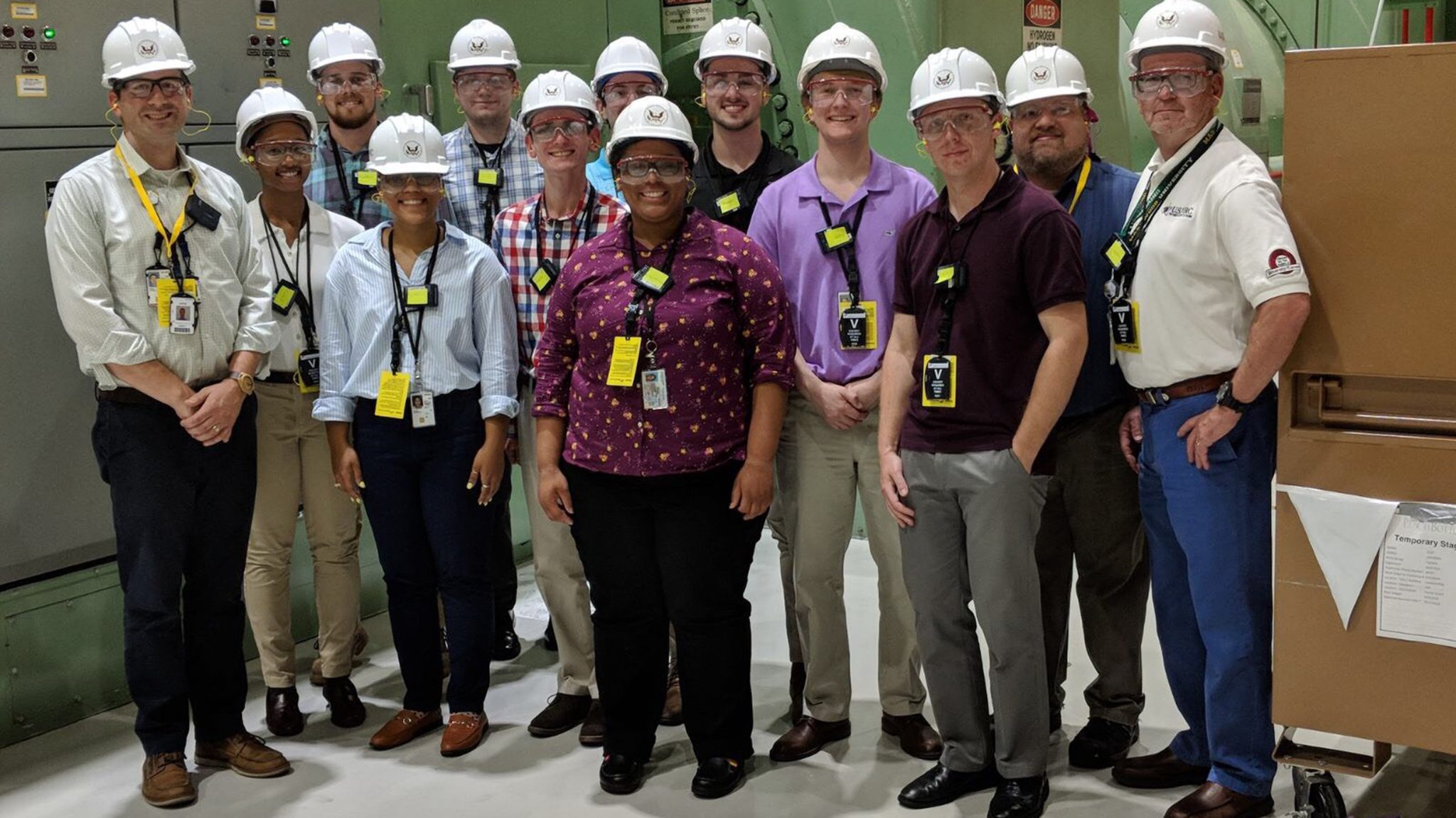
Arizona Morgan-Harris (center) shares a moment with fellow employees at the U.S. Nuclear Regulatory Commission in Washington, D.C., during her co-op internship last summer. The 2019 UM chemical engineering alumna begins working for Savannah River Nuclear Solutions in Augusta, Georgia, this summer. Submitted photo
When recent University of Mississippi graduate Arizona Morgan-Harris (BSChE 19) applied for her co-op internship, she was searching for professional work experience before joining the workforce. As an intern engineer at the U.S. Nuclear Regulatory Commission in Washington, D.C., last summer, the Senatobia native achieved her goal.
Morgan-Harris, who received her bachelor’s degree in chemical engineering in May, worked in the federal agency’s Division of Risk Assessment. She was initially apprehensive about relocating so far from home and about her responsibilities as an intern at a major federal agency.
“At first, I was a little nervous about being 15 hours away from home and working my first ‘adult’ job in such a huge city,” Morgan-Harris said. “Once I learned the requirements of my job, I knew that I’d been well prepared through my classes at Ole Miss and would be fine.”
During the two-month internship, her daily responsibilities entailed reviewing and categorizing materials in fire protection databases and in risk assessment license agreements, which provide guidance for NRC nuclear plant inspectors and licensing engineers.
She underwent training available for all NRC interns and new employees that describes nuclear power plant designs and systems, and engineering training that specifically applies to reviewing the operation of plant systems.
Morgan-Harris then took nuclear power facility site access training that allowed her unescorted access to U.S. commercial power plants. She was responsible for the development of a probabilistic risk assessment, or PRA, toolkit that provided information reference and in-depth detail for performing a risk-informed licensing review.
Finally, she visited the Peach Bottom Plant in Pennsylvania, where she viewed a number of boiling water reactor plant systems, emergency systems, and portable and backup equipment that all U.S. nuclear power plants installed following the Fukushima I nuclear plant accident in Japan.
Morgan-Harris was an exceptional intern, said Greg Casto, chief of research and test reactors licensing in NRC’s Division of Licensing Projects.
“She did a great job of learning the general concepts, then compiling the specific regulatory communications, guidance, instructions and examples into a useful tool for our licensing and inspection staff,” Casto said. “This tool is being promoted and used throughout the agency, and summer interns we have this year are further reviewing and adding new information to Arizona’s toolkit.”
The internship offered Morgan-Harris opportunities to learn about working in an office setting and how to be creative.
“It taught me to take that initiative to take a class, do training or attend talks with supervisors,” she said.
Starting in July, Morgan-Harris will begin working at Savannah River Nuclear Solutions. By performing daily tasks at her previous employer, she gained the confidence to work in her new setting.
“My new job will be similar to my internship in that the Regulatory Commission and Savannah River are both nuclear and government related,” Morgan-Harris said. “During my first six months on the new job, I’ll be rotating between several businesses. Afterward, I’ll select the one specialty area in which I will pursue my career.”
Morgan-Harris said she is excited about career possibilities.
“Through my Ole Miss engineering education and co-op internship experiences, I know I can do well in whatever career field I choose,” she said. “My internship definitely changed my work ethic and made me become more focused. I know I’m fully prepared for a career that will help me make a difference in the world.”
Casto agreed that Morgan-Harris shows promise in her career.
“In her very limited time here, she was able to develop from scratch an IT-interfaced information system that provided a single access tool to staff performing risk-informed licensing reviews,” he said. “This tool has been very helpful to staff, especially those people who are not PRA experts but need to have some understanding of PRA practices and review tools.”